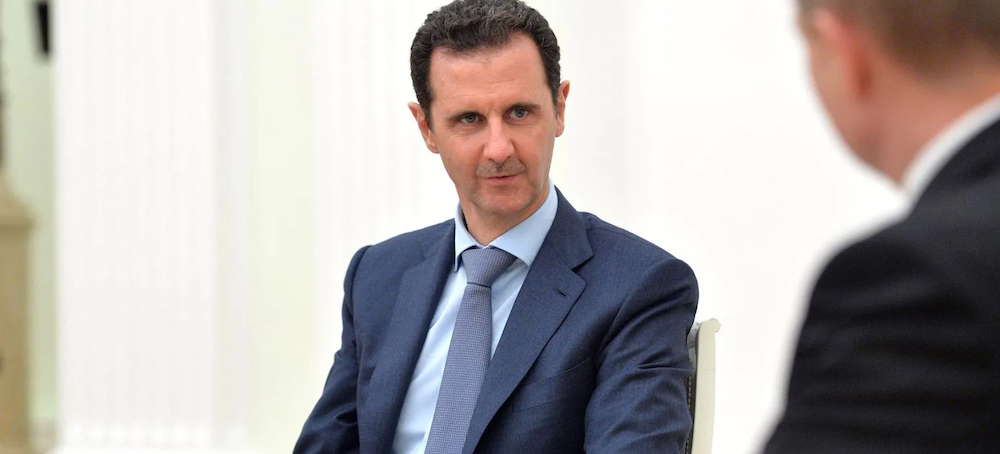Syria’s Assad Trapped by Rebel Advance and Refusal to Compromise
Raya Jalabi and Andrew England Financial Times President of Syria Bashar al-Assad. (photo: Britannica)
President of Syria Bashar al-Assad. (photo: Britannica)
Rapid capture of Aleppo from government forces underlines regime’s fragility despite Russian and Iranian help
With a long civil war still simmering in Syria, the state broken and bankrupt, and the backers that propped up his regime — Russia, Iran, and Hizbollah — all distracted and weakened by their own conflicts, Assad lay low, seemingly hedging his bets.
But this week’s shock assault by Islamist rebels, who captured Aleppo, the nation’s second city, within 48 hours of launching their offensive, has dramatically exposed the instability in Syria, the fragility of Assad’s hold over his shattered country and the scale of opposition to his rule.
“Assad is extremely vulnerable,” said Haid Haid, a Syrian analyst at Chatham House. “Everybody is waiting to see [if] the regime can mobilise its forces and its allies to push back.”
Assad was already in a bind: Israel, which has launched scores of strikes against Iranian-affiliated targets in Syria over the past 12 months, publicly warned Assad he was in its crosshairs and had to choose sides.
But at the same time, Syria-watchers say, Assad may have seen a chance to regain a degree of autonomy from the foreign supporters on whom he depends, because Arab states and some European powers were beginning to wonder if they should rehabilitate the authoritarian leader.
It seemed the worst of Syria’s civil war was over, Assad was going nowhere and it might be a good time to deal with international issues such as refugees and drug smuggling, so the logic went.
But the startling rebel advance has underscored Assad’s dependence on Russia, Iran and Iranian-backed militants if he is to stave off domestic threats.
Pro-Assad forces melted away as the rebels, led by Hayat Tahrir al-Sham (HTS), marched on Aleppo, a city of 2mn people, and then advanced south towards Hama.
They appeared to be attempting to regroup on Sunday, as Syrian and Russian warplanes launched several air strikes on Aleppo and Idlib, the northwestern province that is HTS’s stronghold.
But analysts say the sense of demoralisation and hopelessness in Syria, 13 years after the civil war erupted out of a popular uprising against the regime, has spread to the rank and file of the army.
“Military units one after the other [were] just falling back and collapsing and abandoning their positions,” said Charles Lister of the Middle East Institute.
Syria’s economy has been teetering on the brink of collapse for years, hampered by unpaid debts to the regime’s foreign patrons, western sanctions, and the banking system’s collapse in neighbouring Lebanon, long a haven for Syrian businessmen.
Over the past five years, Syrians had grown poorer, and the regime had done little to improve people’s lives, said Syrian economic expert Jihad Yazigi. Added to the rising taxes, land expropriation and a crumbling economy “is the regime’s corruption, which is embedded in every aspect of the state”.
The Assad family’s perceived disregard for Syrians’ suffering and its own rapaciousness has helped spread discontent beyond the pocket of Assad opponents, and has metastasised across Syrian society, including among pockets of loyalists from Assad’s own Alawite minority community.
“Many are furious that after years of loyalty, they are even worse off than before,” Yazigi said.
Corruption and demoralisation now extends across many government institutions in Syria, as civil servants help oversee a state where very little functions.
Although there were recent attempts to professionalise the army, “it was a case of too little, too late”, Yazigi said. Morale has remained low with forcible conscription and the removal of subsidies continuing to hit soldiers hard.



